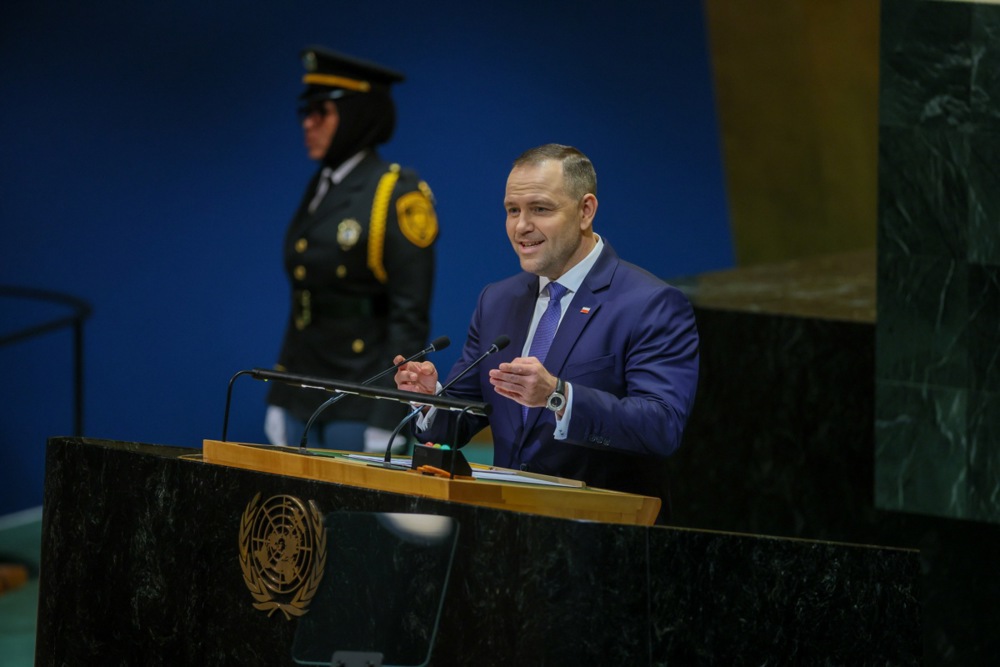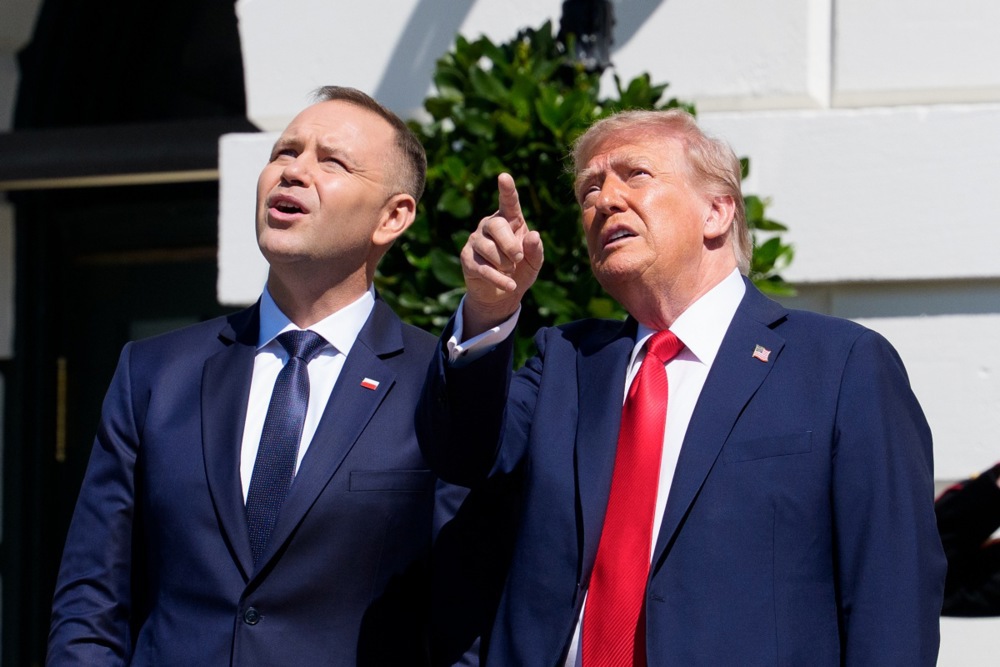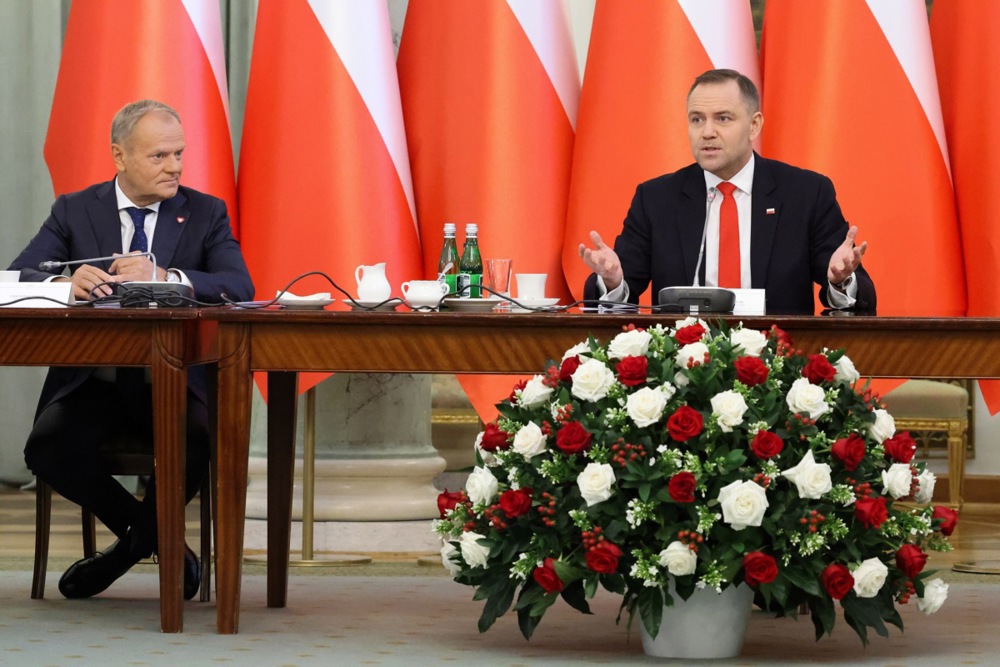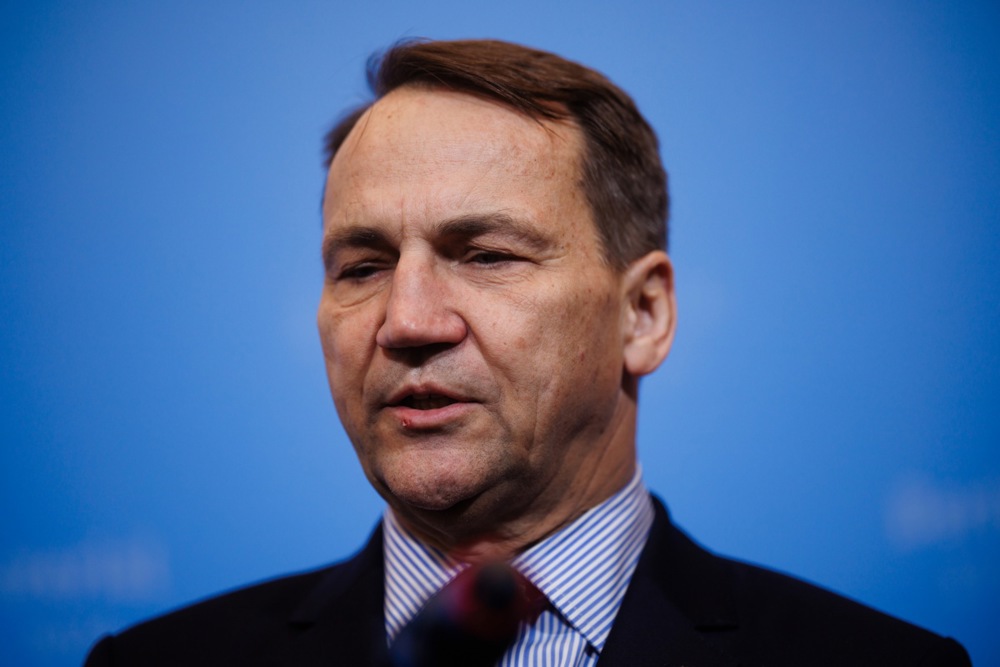Poland’s President Karol Nawrocki has been accused of fostering euro-scepticism and laying the groundwork for his country’s departure from the European Union.
Radosław Sikorski, the foreign minister in the centre-left coalition led by Prime Minister Donald Tusk, made the accusations against opposition Conservatives (PiS)-aligned Nawrocki for rhetoric he said was preparing the ground for “Polexit”.
Sikorski’s comments came in a speech in parliament on November 19 in which he said that Poland would retaliate against alleged Russian sabotage on Polish railways. He then criticised the President over the latter’s views on the European Union.
He accused Nawrocki’s of fostering of “anti-EU spirit”. It was “not only offensive but also dangerous” for the head of state to share eurosceptic views while representing Poland.
Sikorski was referring to Nawrocki’s Independence Day speech in which the he warned against “foreign agendas” influencing Polish policy-making and challenging its sovereignty.
The foreign minister took Nawrocki to task over the fact that the President omitted any reference to Russian aggression. He said Nawrocki needed “to decide who is our ally and who is the enemy in this war”.
“Is the enemy a Brussels official considering payment to Poland from the recovery funds or from the funds for strengthening defence? No, the enemies are those who sent saboteurs to murder Poles,” said Sikorski.
He went on to accuse Nawrocki of “preparing the political and psychological ground for Polexit.”
Sikorski warned such a move would leave Poland “not only poorer but also less safe”.
He then claimed that membership of the EU enhanced Polish sovereignty.
“It is not EU membership that leads to the loss of sovereignty, but the opposite,” Sikorski said, adding: “Thanks to throwing off the Communist yoke and regaining sovereignty, we were able to join the European Union!”
The foreign minister attacked Nawrocki’s decision to block the nomination of 46 judges so far this month. He said that had happened only because the nominees were prepared to align with decisions taken by EU courts, which had found the previous PiS-led government committed rule of law violations while in power.
Sikorski said this was another example of Nawrocki’s euro-sceptic stance, adding that “Poland cannot have two contradictory foreign policies”.
“You, Mr President, have the right to your nationalist views. But if you want to implement them, you should have run for the position of prime minister,” he said.
“On the authority of the Prime Minister [Tusk], I declare that when you speak in an anti-EU spirit, you do not represent Poland’s position, only yours and your office’s position,” Sikorski added.
Responding at a later press conference, Marcin Przydacz, foreign policy adviser to Nawrocki, said the EU is Poland’s “natural environment” but that “this Union has changed markedly over the last two decades and is now far from our dreams”.
He added: “The EU should, above all, support the freedom and sovereignty of states and not govern through diktats.”
Przydacz also said Sikorski’s speech was in his view an attempt to divert attention from what he called the “incompetence of the Polish government” regarding the sabotage of railway lines this earlier month, questioning why the saboteurs were able to flee to Belarus.
He then accused Sikorski of attacking Nawrocki instead of responding to Russian threats. He called on the foreign minister to “come to his senses” and co-operate with the President “at this difficult time for Polish security,” adding that Russia “wants to pit Poles against each other”.
Przydacz also claimed Sikorski had “paralysed the Polish foreign service,” referring to the government’s decision in 2024 to recall more than 50 ambassadors appointed by the previous PiS administration. That has led to a situation in which the Polish Embassy in the US is headed by a chargé d’affaires rather than an ambassador, he added.
The PiS has never proposed Poland leave the EU. In the referendum on Polish accession of 2003, the party supported the country joining the Community. In addition, although reluctantly, the PiS government of the time agreed to sign the Lisbon Treaty in 2009.
The party has, though, become critical of what is sees as the trend towards greater centralisation within the EU, with the bloc’s institutional powers increasing at the expense of member states. It has also been critical of the EU’s climate, energy and migration policies.
The only party openly in favour of Polish withdrawal from the EU is the Confederation of the Crown party, a breakaway group from the right-wing Confederation Party.





